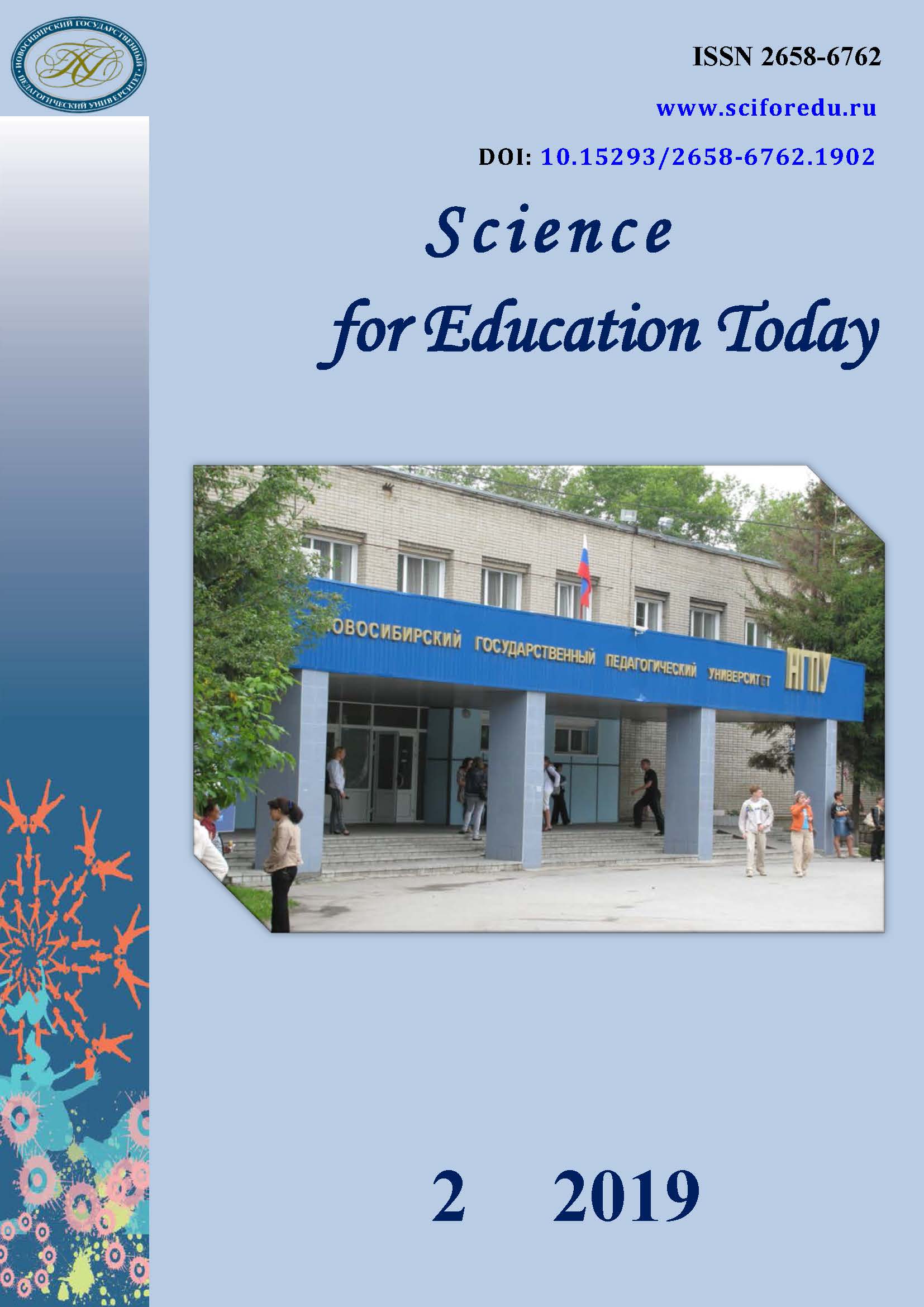Педагогические условия эффективного формирования рефлексивной компетенции студентов при обучении математике
Effective formation of students' reflective competence in the process of studying mathematics: Educational conditions
Author(s): Tatyana Alexeevna Bondarenko, Galina Anatolevna KamenevaSubject(s): Higher Education , Sociology of Education
Published by: Новосибирский государственный педагогический университет
Keywords: Reflective competence; Professional competence; Reflective learning activity; Educational conditions; Conditions for competence development; Levels of competence development; Reflexive-activity approa
Summary/Abstract: Introduction. The article presents a study on formation of the reflexive competence in technical University students. The purpose of the research is to reveal the educational conditions aimed at formation of students' reflective competence. Materials and Methods. The methodological basis of the process under study includes the competence and reflexive-activity approaches. The following research methods have been employed: analysis and generalization of scientific literature, conceptual analysis, documentary analysis, tests, surveys, statistical methods for primary data processing, summarizing the practices in the field of teaching mathematics at a technical university. Results. The authors have revealed a connection between the concepts of ‘professional competence’ and the ‘reflective competence’ of students. The necessity of developing students' reflective competence as one of the fundamental professional competencies is clarified. The authors have identified the external and internal educational conditions as factors of the learning process, affecting the students’ preparation for their professional activities and ensuring the effectiveness of this process. The article outlines the stages of the formation process, presents the levels of reflexive competence development and indicators characterizing each level. The authors describe diagnostic tools to identify the level of students’ reflective competence. The study indicates the correlations between the levels of reflexive competence and students’ learning achievements. The authors emphasize the significance of organizing students’ reflexive-cognitive activity contributing to effective reflective competence formation as a component of professional competencies of technical university graduates. Conclusions. The authors present a set of educational conditions which contribute to the effective formation of students' reflective competence.
Journal: Science for Education Today
- Issue Year: 9/2019
- Issue No: 2
- Page Range: 96-107
- Page Count: 12
- Language: Russian

